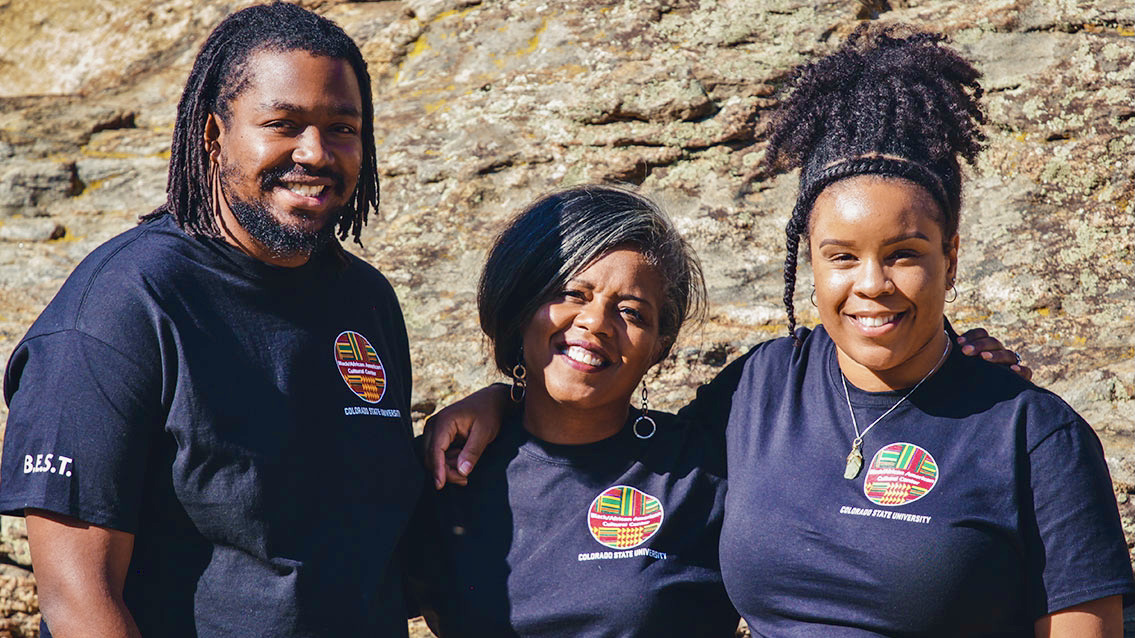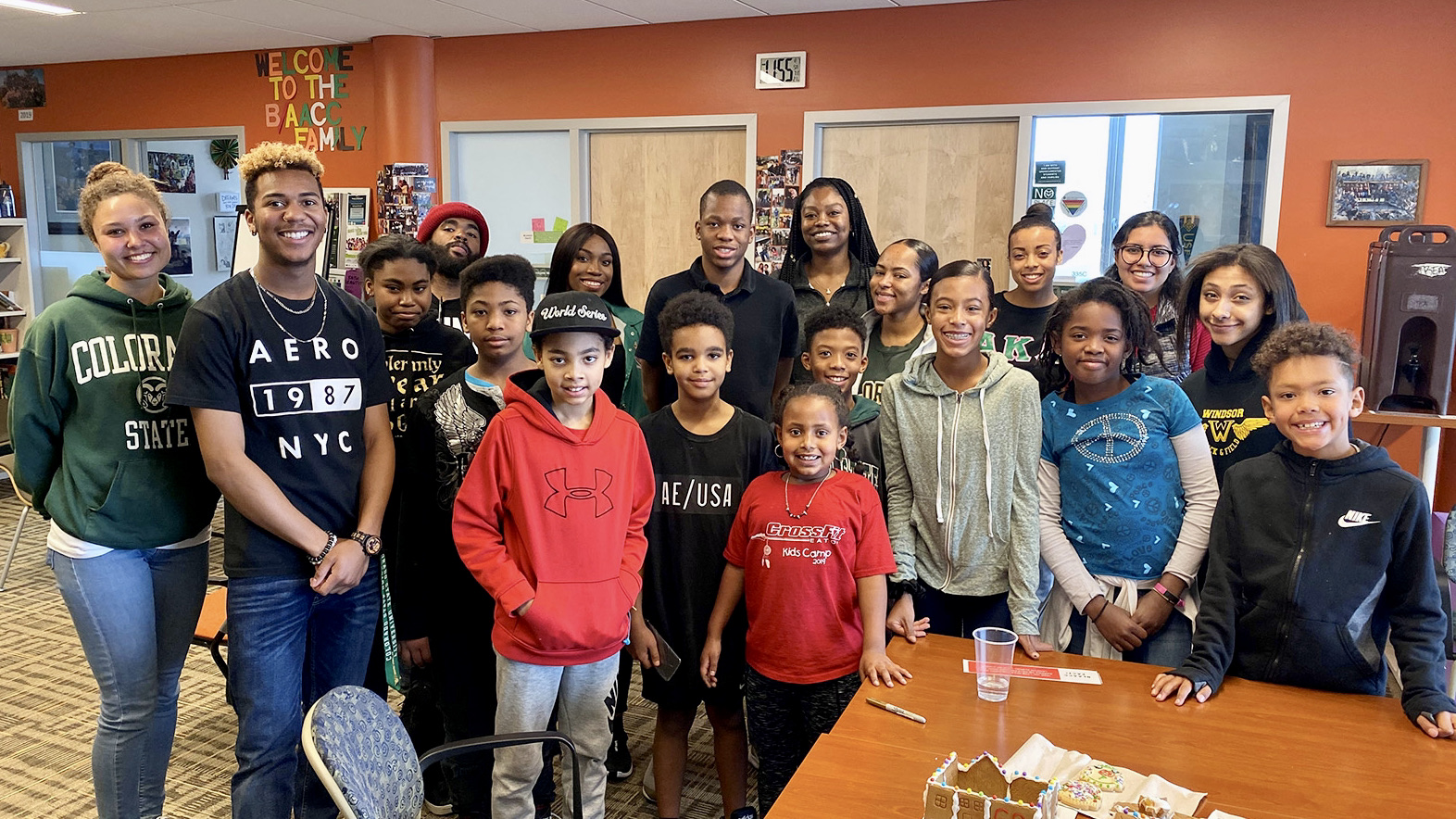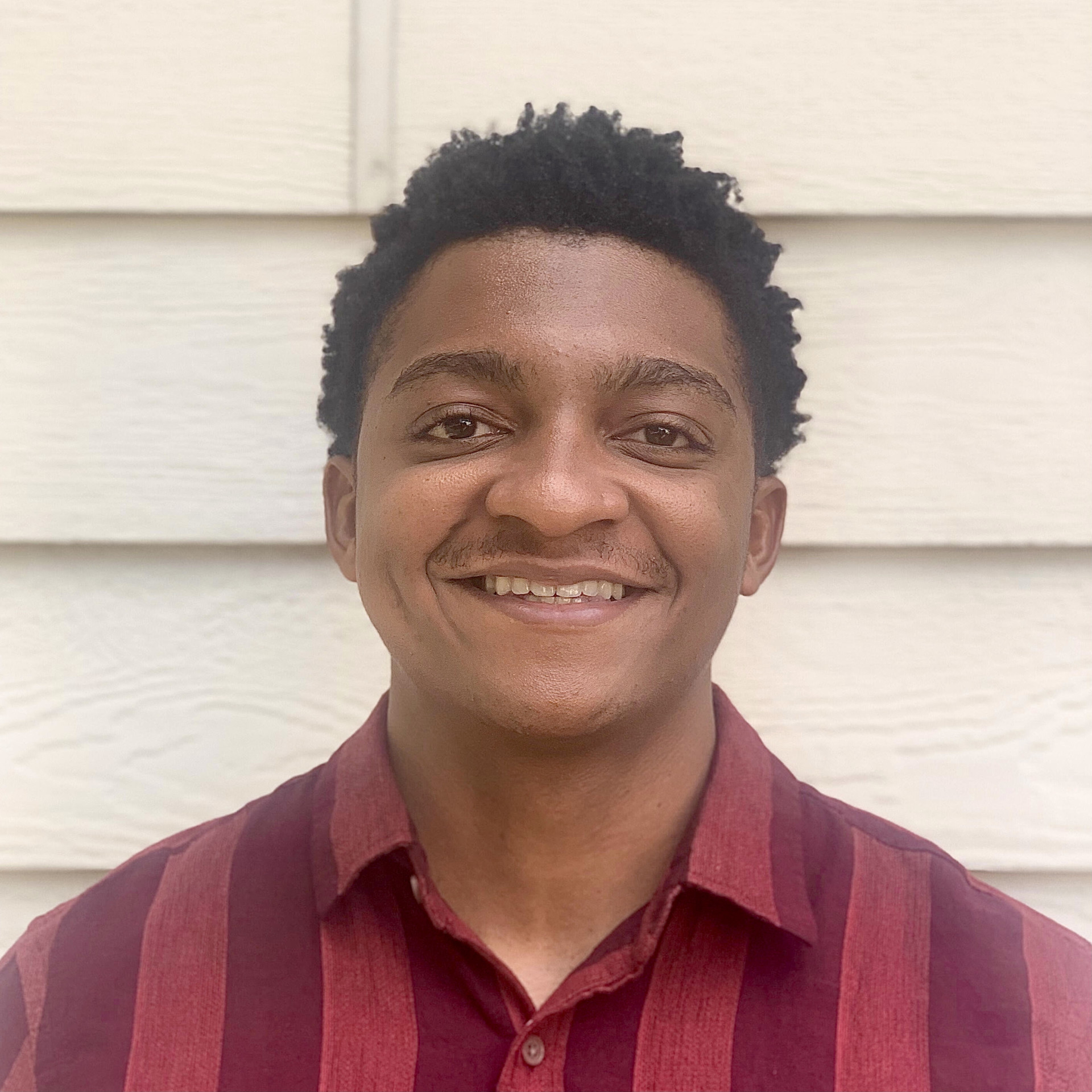
Former B/AACC director Bridgette Johnson (center) poses with colleagues Adrian Jones (left) and Emerald Green (right) on one of the Center’s outdoor outings, August 2019. Photo courtesy of B/AACC staff.
The killing of 46-year-old George Floyd by Minneapolis Police on May 25 reignited the nationwide Black Lives Matter movement and related protests in the U.S. and globally throughout the summer of 2020. As a result, a generous donor has provided funds to Colorado State University’s Black/African American Cultural Center (B/AACC) to formally establish the University’s first Black Empowerment and Equity Fund.
The new fund will support two of the B/AACC’s programs. A new week-long Civil Rights Alternative Spring Break trip is designed to bring Black and African American CSU students to historic sites of events that shaped the U.S. Civil Rights Movement in the 1960s, and GPS (Giving Back, Empowering, Strengthening Our Culture) will provide Black and African American youth in grades 3-12 in Fort Collins a pre-college mentorship facilitated by CSU students.
On Jan. 18, in celebration and recognition of the life and legacy of Dr. Martin Luther King, Jr., the B/AACC is launching the new fundraising campaign with a goal of raising at least $5,000, to help offset travel costs for students in the Civil Rights Alternative Spring Break trip, and enable stipends for GPS destination leaders, who have been supporting the program on a volunteer basis.
“If these students attend the Civil Rights tour, then they will be educated about Black history in America, and they will be able to pass down that knowledge that they’ve gained to the youth of our community,” said Bridgette Johnson, managing director of diversity, equity, inclusion and student success with CSU’s Office of the Vice President for Student Affairs and former director of B/AACC. She added that this is important especially since Black history is often altered in today’s educational curricula and materials, or omitted altogether.
Johnson sees the Black Empowerment and Equity Fund as “a gift that will keep on giving,” and remains hopeful that the Center will reach its initial $5,000 goal to support both programs’ development.
“There are several ways to support Black and African American students at Colorado State University,” she said. “This is one that would impact several students at one time and that will continue to give back to our community.”

B/AACC GPS student-mentors pose for photo with a group of Fort Collins youth, August 2019. Photo courtesy of B/AACC staff.
Grounding perception
The Civil Rights Alternative Spring Break trip was originally slated for Spring 2020 but had to be cancelled due to the risks of the COVID-19 pandemic. The center is now aiming to host the inaugural trip in Spring 2022.
Johnson asked B/AACC staffer Ethan Harris to coordinate and plan the week-long experience for a cohort of 12 to 15 students.
“It was something I’d never done before but something I was absolutely happy to take on,” said Harris, who graduated from CSU in Fall 2020 with a B.A. in political science and a minor in ethnic studies and has worked with the B/AACC as a program assistant and peer coordinator for more than two years.
Working with staff from CSU’s SLiCE (Student Leadership, Involvement and Community Engagement) office, Harris planned the trip with the primary goal of helping participating students to better understand what it meant and means to be Black in the U.S., while also emphasizing how much progress was made through the Civil Rights Movement of the 1960s. “It’s different when you can see it, when you’re in the place where it happened,” said Harris.
The trip’s agenda included visits to the National Center for Civil and Human Rights and APEX Museum in Atlanta; the Birmingham Civil Rights Institute; and the Edmund Pettus Bridge in Selma, Alabama, the site of the infamous Bloody Sunday conflict of March 7, 1965, when armed police attacked peaceful demonstrators as they attempted to march to the Alabama state capital of Montgomery.

“It’s important to understand where we came from and how far we’ve come in just a short amount of time,” Harris said. “Sometimes, the best way to push forward is to turn around and look at how far we’ve come.”
Starting on Martin Luther King, Jr. Day 2021 (Jan. 18), donations can be made to the B/AACC’s Black Empowerment and Equity Fund through a dedicated CSU RamFunder.